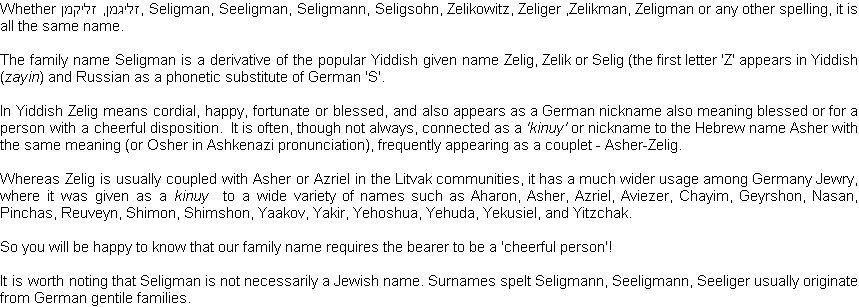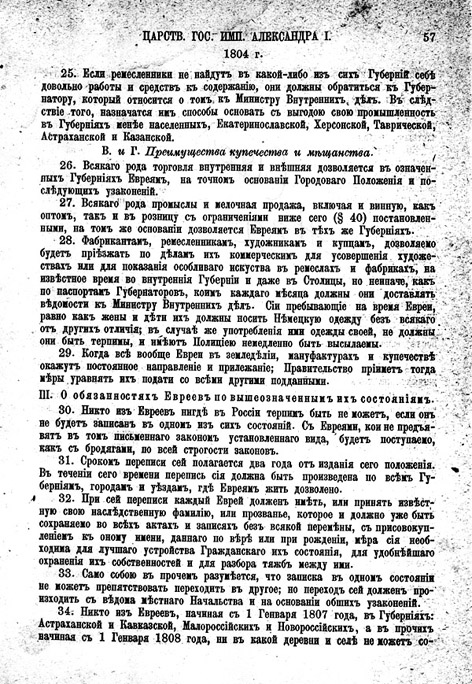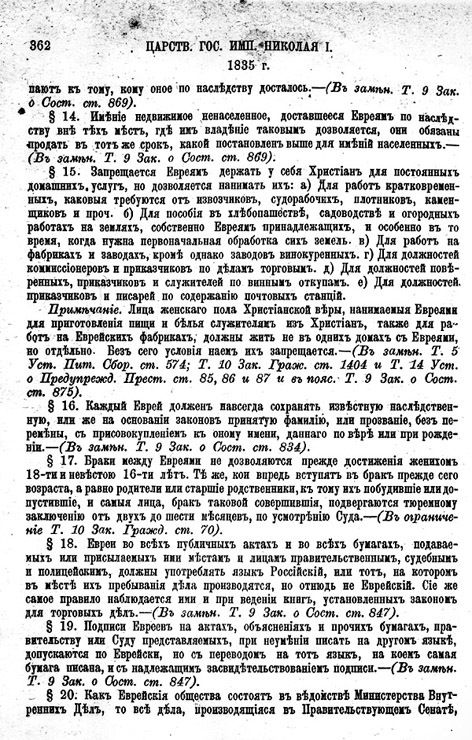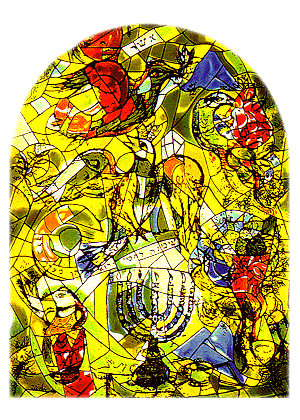





Seligman - The Name
The Formulation of Jewish Surnames
Ashkenazi Jewish family names are a relatively modern phenomena. Modern states like surnames. Control of the population especially for purposes of taxation and military recruitmenti was simplifyed through the clear identification of people with surnames. Family names had first become obligatory in 1787 in Austria and later in the German states. Meanwhile, in Czarist Russia, Peter the Great was attempting to organise his huge lands through policies of modernisation and centralisation. He had also embarked on the absorption of the territories of the Pale of Settlement - today an area covering Belarus, parts of Poland, Lithuania, Latvia and Ukraine.
Ashkenazi Jewish family names are a relatively modern phenomena. Modern states like surnames. Control of the population especially for purposes of taxation and military recruitmenti was simplifyed through the clear identification of people with surnames. Family names had first become obligatory in 1787 in Austria and later in the German states. Meanwhile, in Czarist Russia, Peter the Great was attempting to organise his huge lands through policies of modernisation and centralisation. He had also embarked on the absorption of the territories of the Pale of Settlement - today an area covering Belarus, parts of Poland, Lithuania, Latvia and Ukraine.
What's in a Name ?
On December 9, 1804, Czar Alexander I issued the "Imperial Statute Concerning the Organization of Jews" (Vysochaishe utverzhdennoe Polozhenie. - O ustroistve Evreev). Article 31 of the edict reads: "Every Jew must have or adopt an inherited last name, or nickname, which should be used in all official acts and records without change."
In practice the adoption of surnames does not seem to be rigorously enforced. Soon the collection of tax and from 1827, the mandatory conscription of Jews into the Czarist army, made the adoption of a family name a bureaucratic necessity. A further statute, issued on May 31 1835, by the anti-semitic Czar Nicholas I, required "Every Jew, in addition to a first name given at a profession of faith or birth, must forever retain, without alteration, a known inherited or legally adopted surname or nickname."
Many of the new names followed the same pattern of formulation, as names were adopted in an almost collective procedure at the same time. These patterns were encouraged by the government seeking as much uniformity as possible. Prior to the statutes, Jews would adopt a patronymic name, David Meir ben Arie Leibe for example. The new names taken by the Jews in the Pale of Settlement were based on the patronymic, trades, places of origin, given names, personality traits, items, geographical features and community names such as Cohen or Katz. Names were often rounded off with a Russian, Polish or German suffix, such as -man, -witz, -sohn, -berg or -ski. The Jews considered the use of a surname a gentile practice, so continued to use the patronymic within the Jewish Community itself, while the surname was utilised for official business like census, deeds, passports and later for emigration.
In practice the adoption of surnames does not seem to be rigorously enforced. Soon the collection of tax and from 1827, the mandatory conscription of Jews into the Czarist army, made the adoption of a family name a bureaucratic necessity. A further statute, issued on May 31 1835, by the anti-semitic Czar Nicholas I, required "Every Jew, in addition to a first name given at a profession of faith or birth, must forever retain, without alteration, a known inherited or legally adopted surname or nickname."
Many of the new names followed the same pattern of formulation, as names were adopted in an almost collective procedure at the same time. These patterns were encouraged by the government seeking as much uniformity as possible. Prior to the statutes, Jews would adopt a patronymic name, David Meir ben Arie Leibe for example. The new names taken by the Jews in the Pale of Settlement were based on the patronymic, trades, places of origin, given names, personality traits, items, geographical features and community names such as Cohen or Katz. Names were often rounded off with a Russian, Polish or German suffix, such as -man, -witz, -sohn, -berg or -ski. The Jews considered the use of a surname a gentile practice, so continued to use the patronymic within the Jewish Community itself, while the surname was utilised for official business like census, deeds, passports and later for emigration.
1804 Statute Concerning the Organization of Jews
Article 32 states, "Every Jew must have or adopt an inherited last name, or nickname, which should be used in all official acts and records without change."
Article 32 states, "Every Jew must have or adopt an inherited last name, or nickname, which should be used in all official acts and records without change."
1835 Statute Concerning the Organization of Jews
Article 16 states, "Every Jew, in addition to a first name given at a profession of faith or birth, must forever retain, without alteration, a known inherited or legally adopted surname or nickname."
Article 16 states, "Every Jew, in addition to a first name given at a profession of faith or birth, must forever retain, without alteration, a known inherited or legally adopted surname or nickname."
For genealogical research the adoption of unique surnames makes the tracing of family through public records possible, while the patronymic documentation found within the community archives is nigh on impossible to exploit.


Selig is Asher
Asher was the eighth son of Jacob and the father of the tribe of Asher, one of the twelve tribes of Israel. His mother was Zilpah, Leah's maidservant. Leah named him Asher, saying "Happy am I" (Genesis 30:13). The text of the Torah argues that the name of Asher means happy or blessing, implying a derivation from the Hebrew term osher (with the same meaning). However, the name of Asher may have more to do with a deity originally worshipped by the tribe, either Asherah, or Ashur the chief Assyrian deity.
Jacob blessed Asher on his deathbed, saying: "From Asher will come the richest food; he will provide the king's delights" (Genesis 49:20). Thus the tribe of Asher settled the coastal strip from the foot of Mount Carmel up to Sidon. This area, with a benign climate, was some of the most fertile land in Canaan, with rich pasture, wooded hills, and orchards; as such Asher was particularly prosperous, and known for its olive oil, the olive tree being the symbol of the tribe of Asher.
Asher was the eighth son of Jacob and the father of the tribe of Asher, one of the twelve tribes of Israel. His mother was Zilpah, Leah's maidservant. Leah named him Asher, saying "Happy am I" (Genesis 30:13). The text of the Torah argues that the name of Asher means happy or blessing, implying a derivation from the Hebrew term osher (with the same meaning). However, the name of Asher may have more to do with a deity originally worshipped by the tribe, either Asherah, or Ashur the chief Assyrian deity.
Jacob blessed Asher on his deathbed, saying: "From Asher will come the richest food; he will provide the king's delights" (Genesis 49:20). Thus the tribe of Asher settled the coastal strip from the foot of Mount Carmel up to Sidon. This area, with a benign climate, was some of the most fertile land in Canaan, with rich pasture, wooded hills, and orchards; as such Asher was particularly prosperous, and known for its olive oil, the olive tree being the symbol of the tribe of Asher.
Asher by Chagall
The Tribe of Asher by Chagall in the windows of the Twelve Tribes at the Hadassah Hospital
The Tribe of Asher by Chagall in the windows of the Twelve Tribes at the Hadassah Hospital
"From Asher will come the richest food; he will provide the king's delights"

Copyright © 2008 Jon Seligman. All Rights Reserved.


